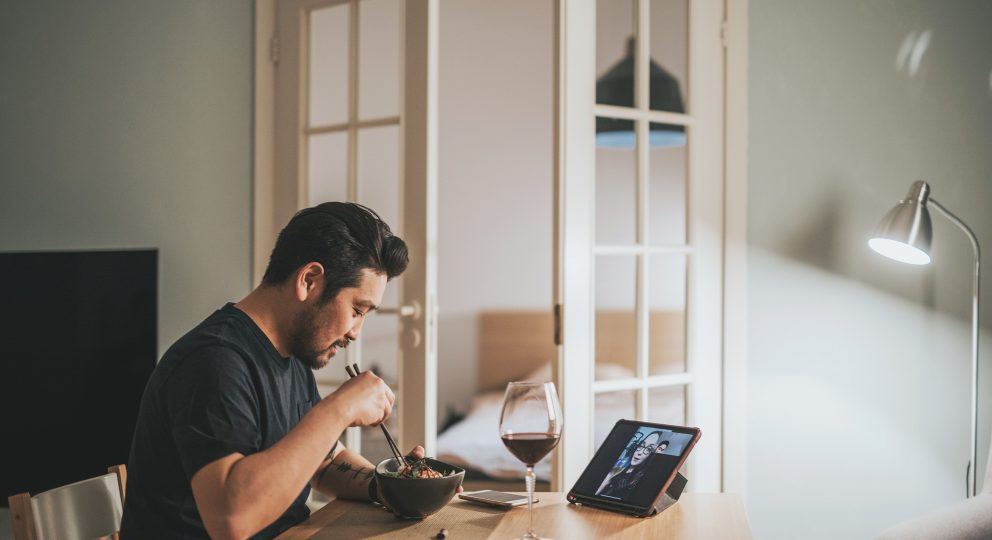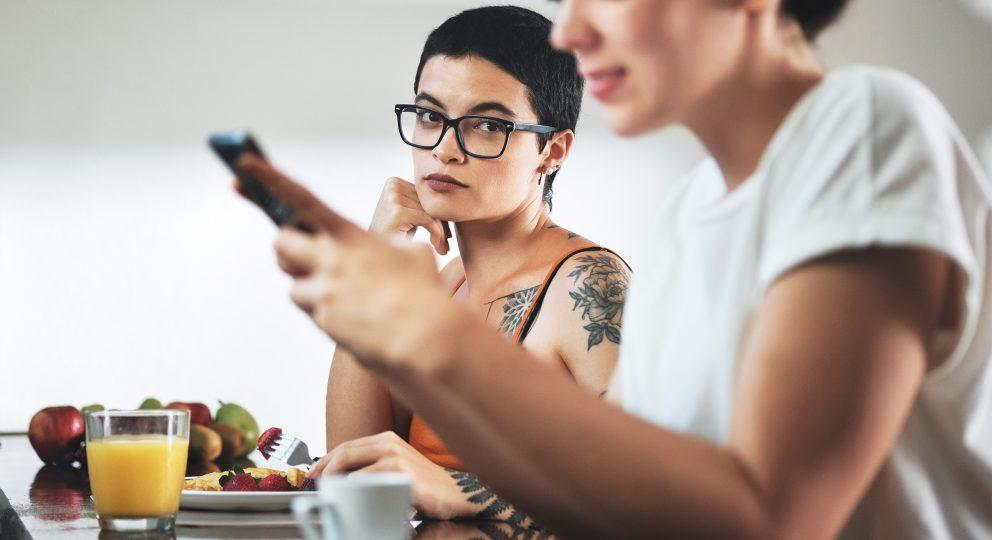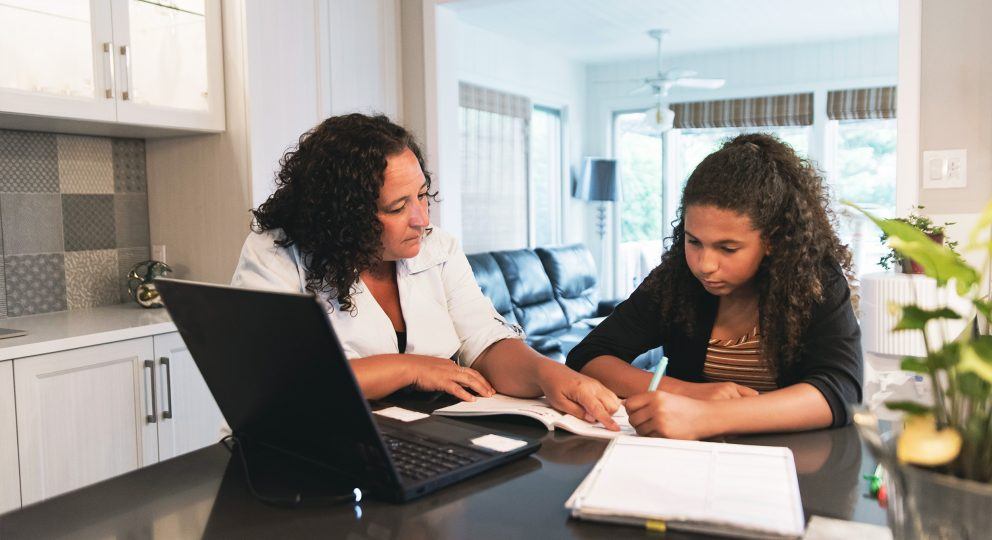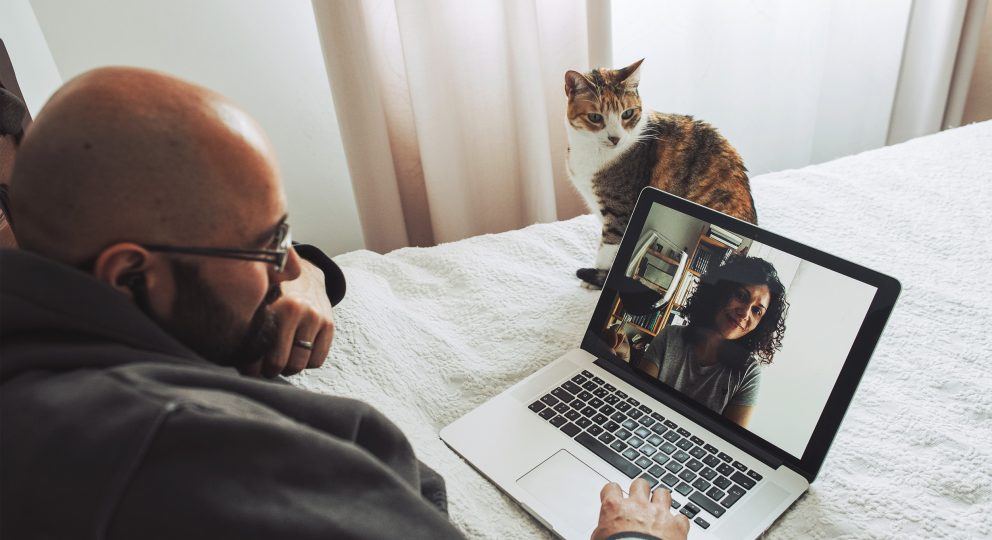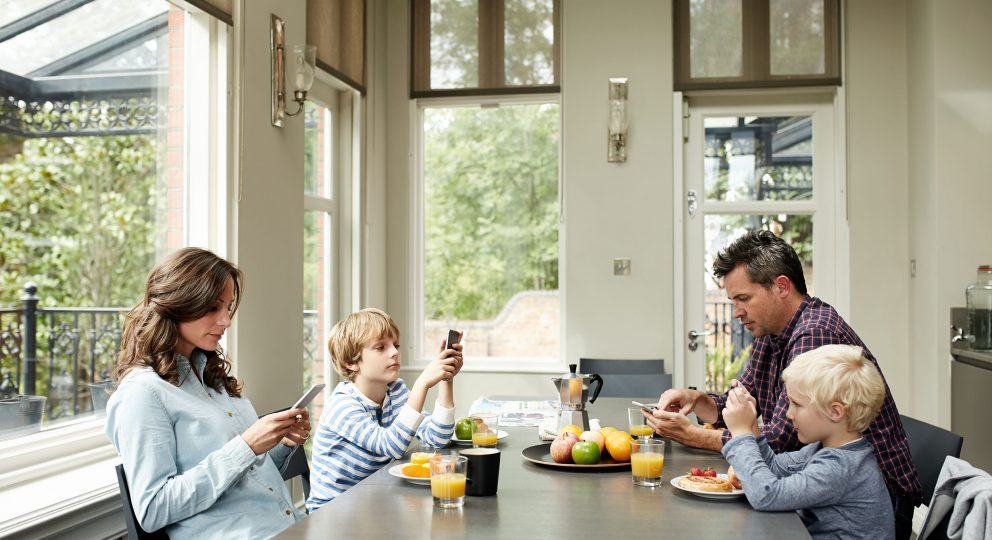Modern communications technology gives couples who are separated by distance the opportunity to share their lives with each other. In long-distance relationships, couples can now connect by video, which provides access to their partner’s eyes, face, and body language.
The upside of long-distance relationships
An article in the Health section of “US News” called The Upside of Long-Distance Relationships tackles some issues directly related to this series and includes several important quotes from Certified Gottman Therapist Dr. Robert Navarra. While the research cited in the article focuses on long-distance relationships, the results carry implications for all couples who use virtual communication technologies.
The article opens with a description of a study run by researchers in Hong Kong and at Cornell University. The reported results follow:
Long-distance lovers felt as much or more trust and satisfaction in their unions as “geographically close” partners…[and] those in long-distance relationships disclosed more personal details to their partner and also idealized each other more.
To clarify, the researchers did not find that idealization of partners improves all relationships. They found a correlation between idealization and greater trust and satisfaction in long-distance relationships. In truth, this makes perfect sense by virtue of a simple fact: idealization of one’s partner is a natural result of distance.
This is not to call into question the importance of “magic” and “special idealization” described by Suzanne Phillips as a benefit of long-distance, but to clarify something important. As Dr. Gottman discusses, remembering all of the beautiful, amazing things you saw in your partner when you first met is key to maintaining lasting love, especially during times of stress and conflict. The purpose of this is to avoid creating a false, negative perspective of him or her as a result of your current state.
Fondness and admiration
Dr. Gottman writes about this in his books as a part of maintaining a culture of fondness and admiration. Don’t idealize your mate as a “goddess” or a “genius.” Rather maintain a realistic image of your lover in circumstances that make it very easy to vilify or lose respect for them. The resulting positive perspective is about seeing each other’s real beauty. You love each other despite human imperfections, even when the going gets rough.
This study suggests that new communication technology, if used in healthy ways, can be wonderful for long-distance relationships. Its existence may actually give couples separated by distance some advantages over those who live close-by.
As the author points out, using virtual communication to connect with a partner long-distance confers unexpected benefits. In requiring extra effort to overcome certain challenges, couples learn to maintain intimacy, care, and healthy problem-solving. Also, daily conflicts over mundane minutiae are often less common in long-distance relationships. So, it is likely that the absence of daily stressors makes it easier to use technology to nurture a positive perspective, share fondness and admiration, and build a strong, satisfying relationship.
Technology as a tool
Couples should, as Dr. Navarra says, take advantage of newly available technology (texting, video chat, social media, etc.) to maintain a strong bond, and the best way to do so is to do so regularly.
“Part of intimacy involves knowing the details of the other person’s daily life, big and small, because you’re that important to each other.” In other words, keep it real. As the article says, “The more a couple knows and appreciates each other, the stronger and healthier they are.” If you are in a long-distance relationship, take our advice:
Share your worlds with each other in all of their interesting, mundane, and complicated glory. Be present. Know each other deeply, and always keep learning. Build love maps. Communicate fondness and admiration.
Read more on the Digital Age blog series.



